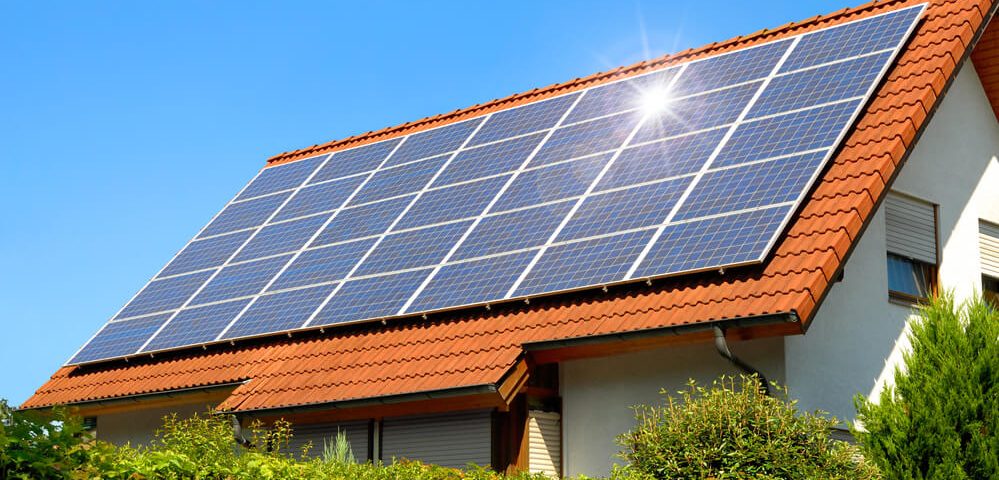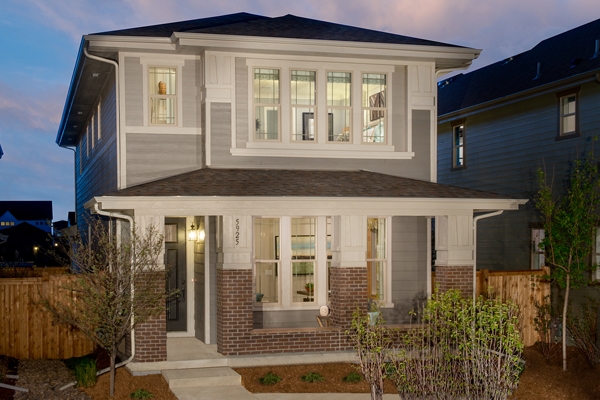
If you haven’t heard by now, beginning in 2020, California will become the first state in the nation to require all newly built homes to have solar panels installed. Single-family homes and multi-family buildings that are up to three stories high must conform to the new solar power standard.
As a result, “New homes that are built under these standards are expected to use 53 percent less energy than our last standards” from 2016, said Drew Bohan, executive director of the energy commission.
The state predicts mandatory solar panel installations and other new improvements will add nearly $10,000 in the upfront cost of a home — a cost that officials say will balance out over time, due to lower electricity bills.
“Homeowners will have two options that eliminate the upfront costs of adding solar: Leasing the solar panels or signing a “power purchase agreement” that pays for the electricity without buying the panels, said Drew Bohan, executive director of the California Energy Commission.
There is a reason why solar energy has become a trending topic. While it has been widely criticized for being expensive or not very efficient, solar energy has now proved to be extremely beneficial – not only for the environment but also financially speaking. Additionally, due to the higher demand, the technology has been improved considerably, turning into a significantly efficient source of clean energy.
Thus, California has established an ambitious goal of relying entirely on zero-emission energy sources for its electricity by the year 2045.
Solar Advantages
1. Renewable Energy Source
Among all the benefits of solar panels, the most important thing is that solar energy is a truly renewable energy source. It can be harnessed in all areas of the world and is available every day. We cannot run out of solar energy, unlike some of the other sources of energy. Solar energy will be accessible as long as we have the sun, therefore sunlight will be available to us for at least 5 billion years when according to scientists the sun is going to die.
2. Reduces Electricity Bills
Since you will be meeting some of your energy needs with the electricity your solar system has generated, your energy bills will drop. How much you save on your bill will be dependent on the size of the solar system and your electricity or heat usage. Moreover, not only will you be saving on the electricity bill, there is also a possibility to receive payments for the surplus energy that you export back to the grid. if you generate more electricity than you use.
3. Diverse Applications
Solar energy can be used for diverse purposes. You can generate electricity (photovoltaics) or heat (solar thermal). Solar energy can be used to produce electricity in areas without access to the energy grid, to distill water in regions with limited clean water supplies and to power satellites in space. Solar energy can also be integrated into the materials used for buildings. Not long ago Sharp introduced transparent solar energy windows.
4. Low Maintenance Costs
Solar energy systems generally don’t require a lot of maintenance. You only need to keep them relatively clean, so cleaning them a couple of times per year will do the job.
5. Technology Development
Technology in the solar power industry is constantly advancing and improvements will intensify in the future.
Solar Disadvantages
1. Cost
The initial cost of purchasing a solar system is fairly high. This includes paying for solar panels, inverter, batteries, wiring, and for the installation. Nevertheless, solar technologies are constantly developing, so it is safe to assume that prices will go down in the future.
2. Weather Dependent
Although solar energy can still be collected during cloudy and rainy days, the efficiency of the solar system drops. Solar panels are dependent on sunlight to effectively gather solar energy. Therefore, a few cloudy, rainy days can have a noticeable effect on the energy system. You should also take into account that solar energy cannot be collected during the night. On the other hand, if you also require your water heating solution to work at night or during wintertime, thermodynamic panels are an alternative to consider.
3. Solar Energy Storage Is Expensive
Solar energy has to be used right away, or it can be stored in large batteries. These batteries, used in off-the-grid solar systems, can be charged during the day so that the energy is used at night. This is a good solution for using solar energy all day long but it is also quite expensive. In most cases, it is smarter to just use solar energy during the day and take energy from the grid during the night (you can only do this if your system is connected to the grid). Luckily your energy demand is usually higher during the day so you can meet most of it with solar energy.
4. Uses a Lot of Space
The more electricity you want to produce, the more solar panels you will need, as you want to collect as much sunlight as possible. Solar panels require a lot of space and some roofs are not big enough to fit the number of solar panels that you would like to have. An alternative is to install some of the panels in your yard but they need to have access to sunlight. If you don’t have the space for all the panels that you wanted, you can opt for installing fewer to still satisfy some of your energy needs.
5. Associated with Pollution
Although pollution related to solar energy systems is far less compared to other sources of energy, solar energy can be associated with pollution. Transportation and installation of solar systems have been associated with the emission of greenhouse gases. There are also some toxic materials and hazardous products used during the manufacturing process of solar photovoltaics, which can indirectly affect the environment. Nevertheless, solar energy pollutes far less than other alternative energy sources.
Bottom Line
Having solar panels installed has its pros and cons, and is more an advantage of saving money for the homeowner, and better for the environment. It’s important to keep in mind, having a knowledgeable agent exclusively on your side when buying new construction, will ensure you know exactly all the things you’re signing up for in advance, and why. Let’s Talk!



